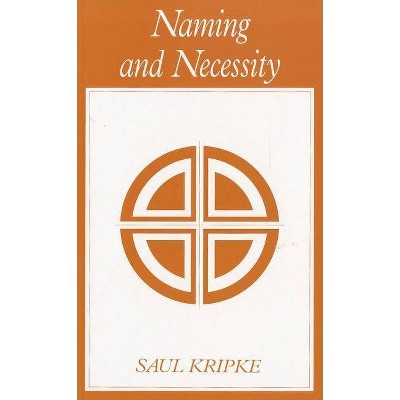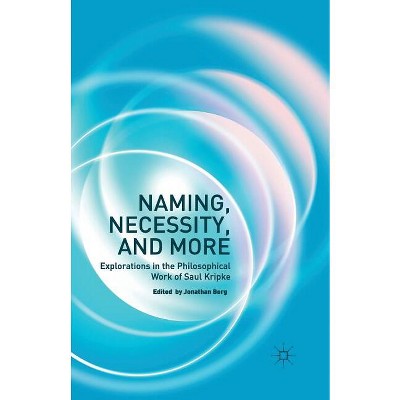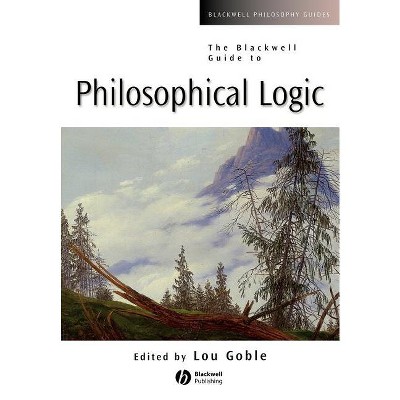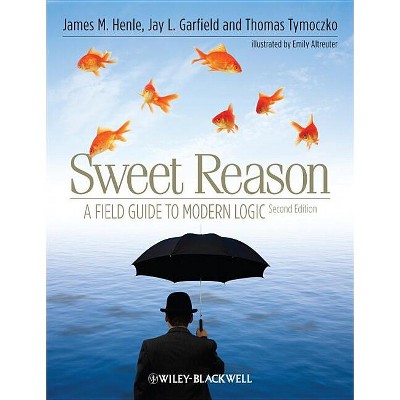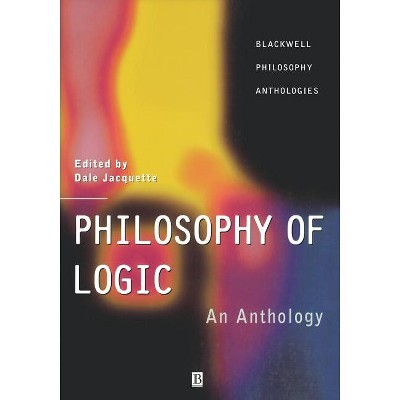About this item
Highlights
- "Much of the philosophical work of the last half-century could not have existed without Naming and Necessity.
- About the Author: Saul A. Kripke (1940--2022) was a Distinguished Professor in the Philosophy and Computer Science Programs at the Graduate Center of the City University of New York and Professor Emeritus at Princeton University.
- 176 Pages
- Philosophy, Logic
Description
About the Book
"Originally I had intended to revise or augment Naming and Necessity extensively. Considerable time has elapsed, and I have come to realize that any extensive revision or expansion would delay the appearance of a separate, less expensive edition of Naming and Necessity indefinitely. Further, as far as revision is concerned, there is something to be said for preserving a work in its original form, warts and all. I have thus followed a very conservative policy of correction for the present printing. Obvious printing errors have been corrected, and slight changes have been made to make various sentences or formulations clearer"--Book Synopsis
"Much of the philosophical work of the last half-century could not have existed without Naming and Necessity. If you read this marvelous book, you'll find out why."
David Chalmers, University Professor of Philosophy and Neural Science and co-director of the Center for Mind, Brain, and Consciousness, NYU
"Naming and Necessity represents a turning-point in the development of modern philosophy. It showed how confusions in the philosophy of language had blocked progress in metaphysics, and it provided a model of systematic philosophical theorizing informed by innovations in logic."
Timothy Williamson, Wykeham Professor of Logic Emeritus, Oxford University
Since first appearing in 1972, Saul Kripke's Naming and Necessity has shaped and continues to shape debates in metaphysics, the philosophy of language, and adjacent areas. It overturned long-established views concerning the relationships between names and descriptions and a priority and necessity, and catalyzed today's thriving essentialist metaphysics. This landmark work is here reissued for its 50th anniversary with a new preface by the author revisiting its central themes. If there is such a thing as essential reading in analytic philosophy, this is it.
From the Back Cover
"Much of the philosophical work of the last half-century could not have existed without Naming and Necessity. If you read this marvelous book, you'll find out why."
David Chalmers, University Professor of Philosophy and Neural Science and co-director of the Center for Mind, Brain, and Consciousness, NYU
"Naming and Necessity represents a turning-point in the development of modern philosophy. It showed how confusions in the philosophy of language had blocked progress in metaphysics, and it provided a model of systematic philosophical theorizing informed by innovations in logic."
Timothy Williamson, Wykeham Professor of Logic Emeritus, Oxford University
"Naming and Necessity is, arguably, the most important philosophical work in the last 100 years, with major implications for logic, metaphysics, epistemology, and our understanding of language. By showing that meaning, modality, and cognition aren't 'in the head, ' but rather are constituted by our relations with people and things, Kripke reinvigorated philosophy by shining new light on reference, essence, necessity, and apriority."
Scott Soames, Distinguished Professor of Philosophy at the University of Southern California
Since first appearing in 1972, Saul Kripke's Naming and Necessity has shaped and continues to shape debates in metaphysics, the philosophy of language, and adjacent areas. It overturned long-established views concerning the relationships between names and descriptions and a priority and necessity, and catalyzed today's thriving essentialist metaphysics. This landmark work is here reissued for its 50th anniversary with a new preface by the author revisiting its central themes, and a new foreword by Romina Birman, Director of the Saul Kripke Center. If there is such a thing as essential reading in analytic philosophy, this is it.
Review Quotes
"Much of the philosophical work of the last half-century could not have existed without Naming and Necessity. If you read this marvelous book, you'll find out why."
--David Chalmers, University Professor of Philosophy and Neural Science and co-director of the Center for Mind, Brain, and Consciousness, NYU
"Naming and Necessity represents a turning-point in the development of modern philosophy. It showed how confusions in the philosophy of language had blocked progress in metaphysics, and it provided a model of systematic philosophical theorizing informed by innovations in logic."
--Timothy Williamson, Wykeham Professor of Logic Emeritus, Oxford University
"Naming and Necessity is, arguably, the most important philosophical work in the last 100 years, with major implications for logic, metaphysics, epistemology, and our understanding of language. By showing that meaning, modality, and cognition aren't 'in the head, ' but rather are constituted by our relations with people and things, Kripke reinvigorated philosophy by shining new light on reference, essence, necessity, and apriority."
--Scott Soames, Distinguished Professor of Philosophy at the University of Southern California
"Kripke's Naming and Necessity was a game-changer in English-speaking philosophy, giving birth to a new era of debates in metaphysics, semantics, and epistemology. 50 years later, there is still much to be learned from the book, and this anniversary edition is just the thing to take us back to the text and see it with new eyes."
--Graham Priest, Distinguished Professor of Philosophy, the CUNY Graduate Center, and Boyce Gibson Professor Emeritus, the University of Melbourne
About the Author
Saul A. Kripke (1940--2022) was a Distinguished Professor in the Philosophy and Computer Science Programs at the Graduate Center of the City University of New York and Professor Emeritus at Princeton University. The author of trailblazing results in modal logic while still in high school, Kripke went on to become one of the most influential logicians and philosophers of his time. He was awarded the Rolf Schock Prize in Logic and Philosophy by the Royal Swedish Academy of Sciences in 2001.
Shipping details
Return details
Trending Book Pre-Orders







